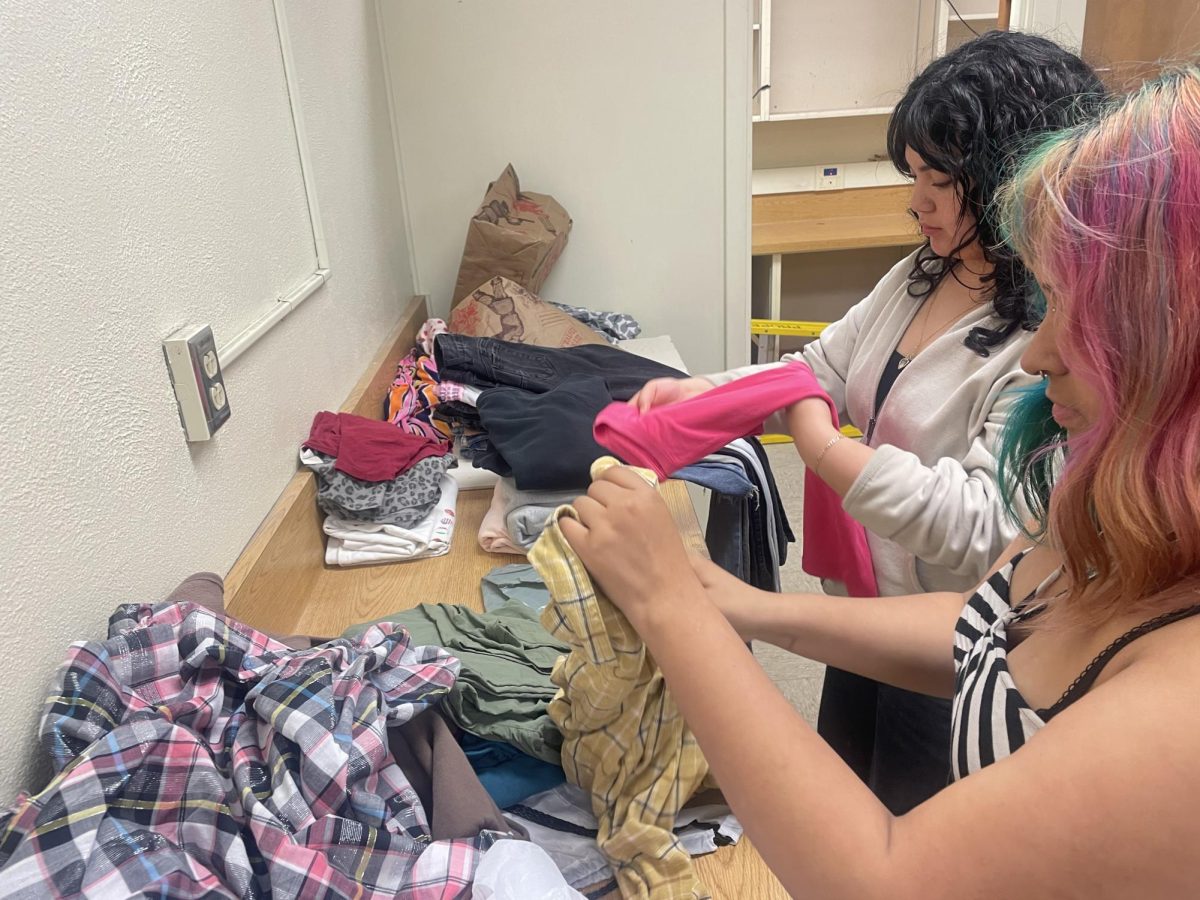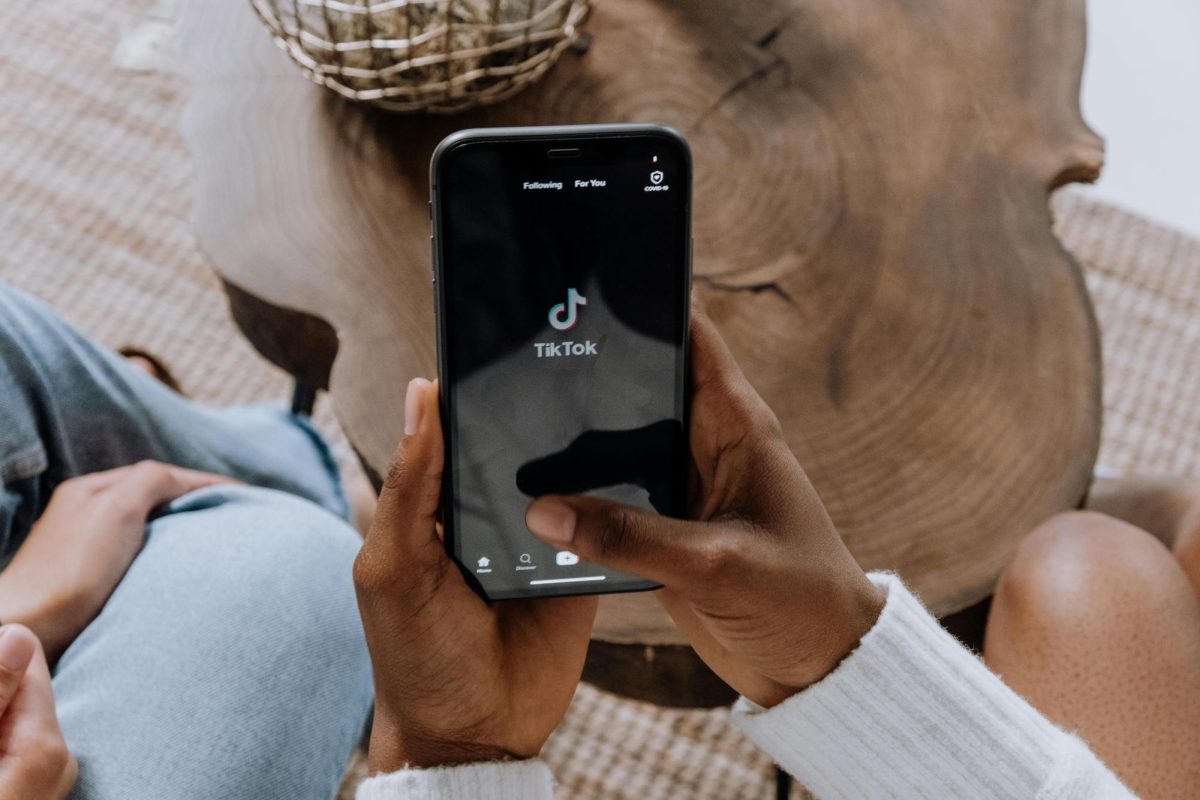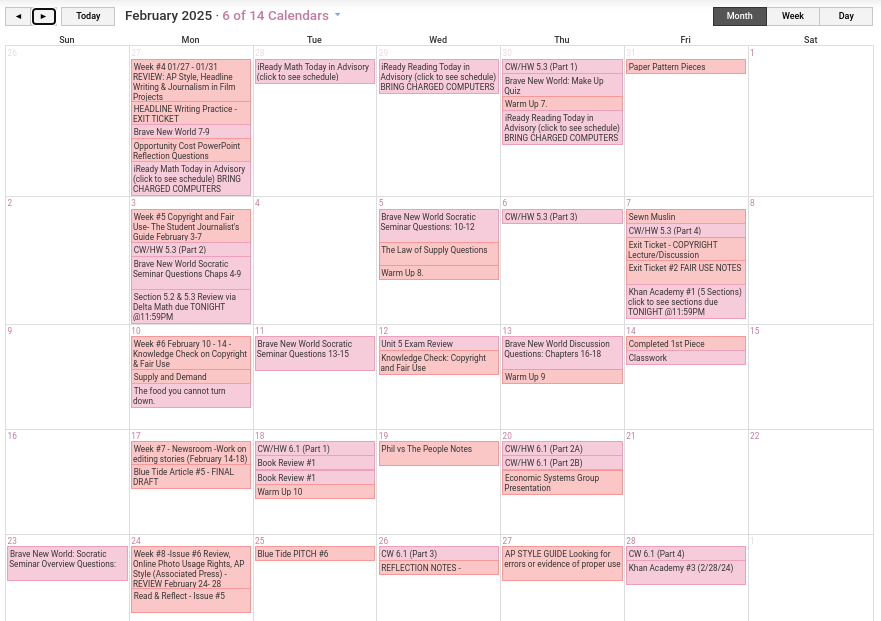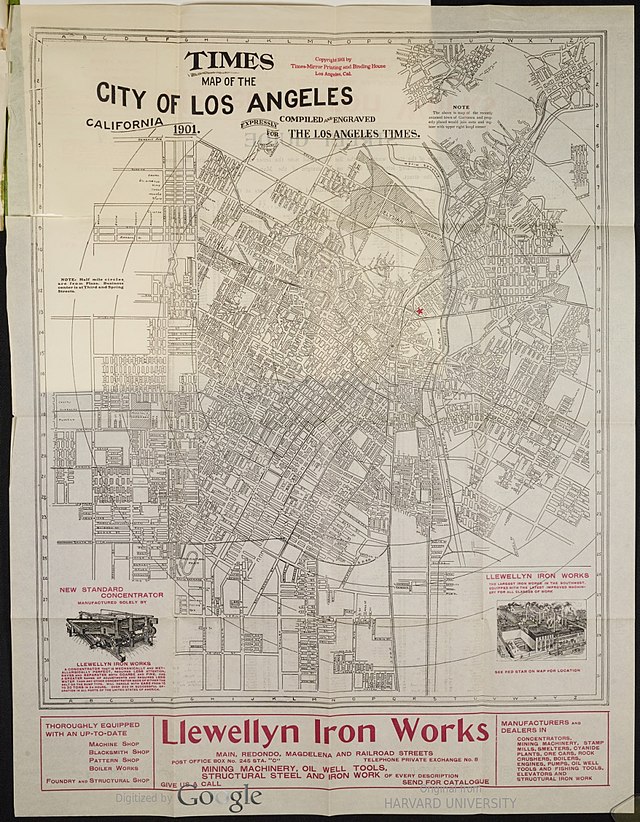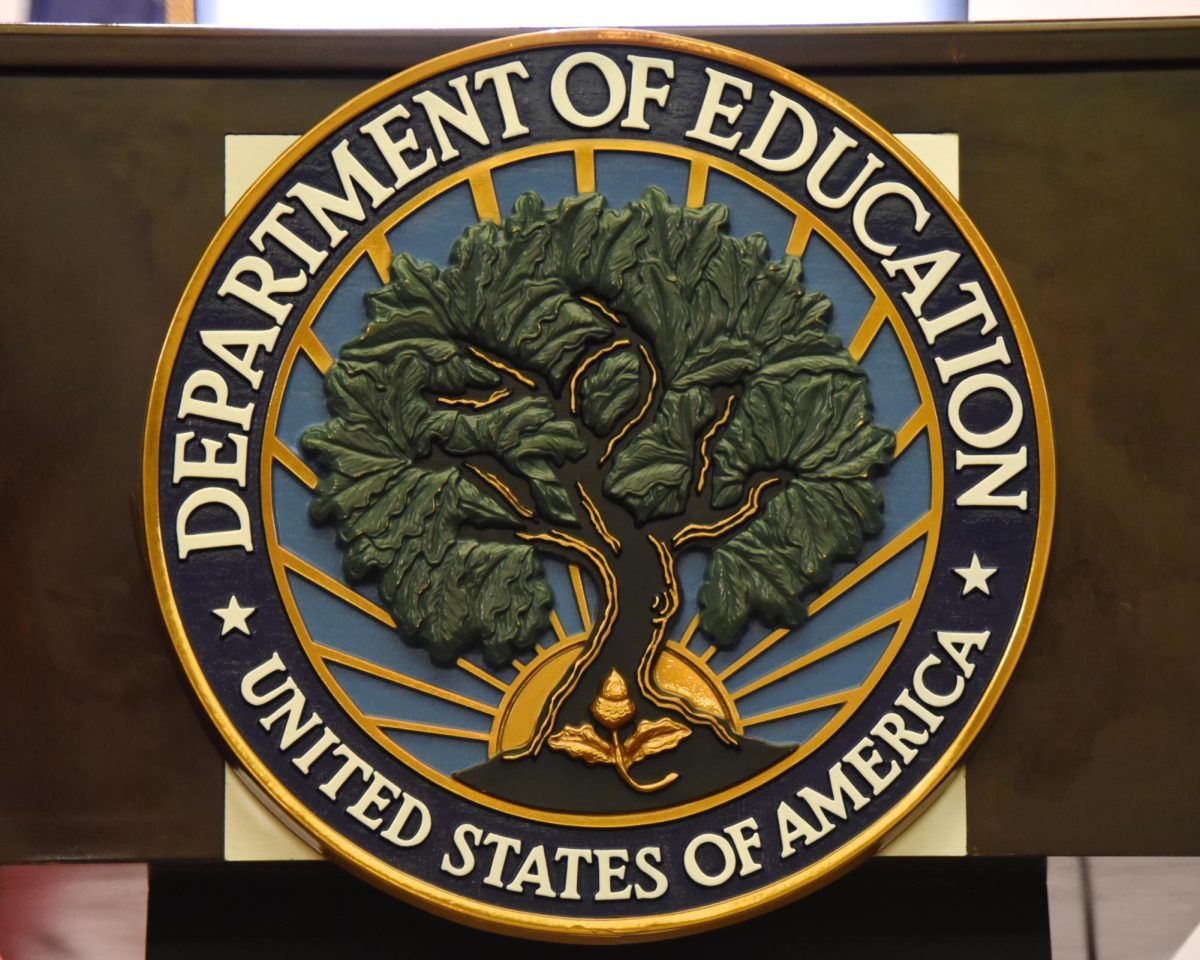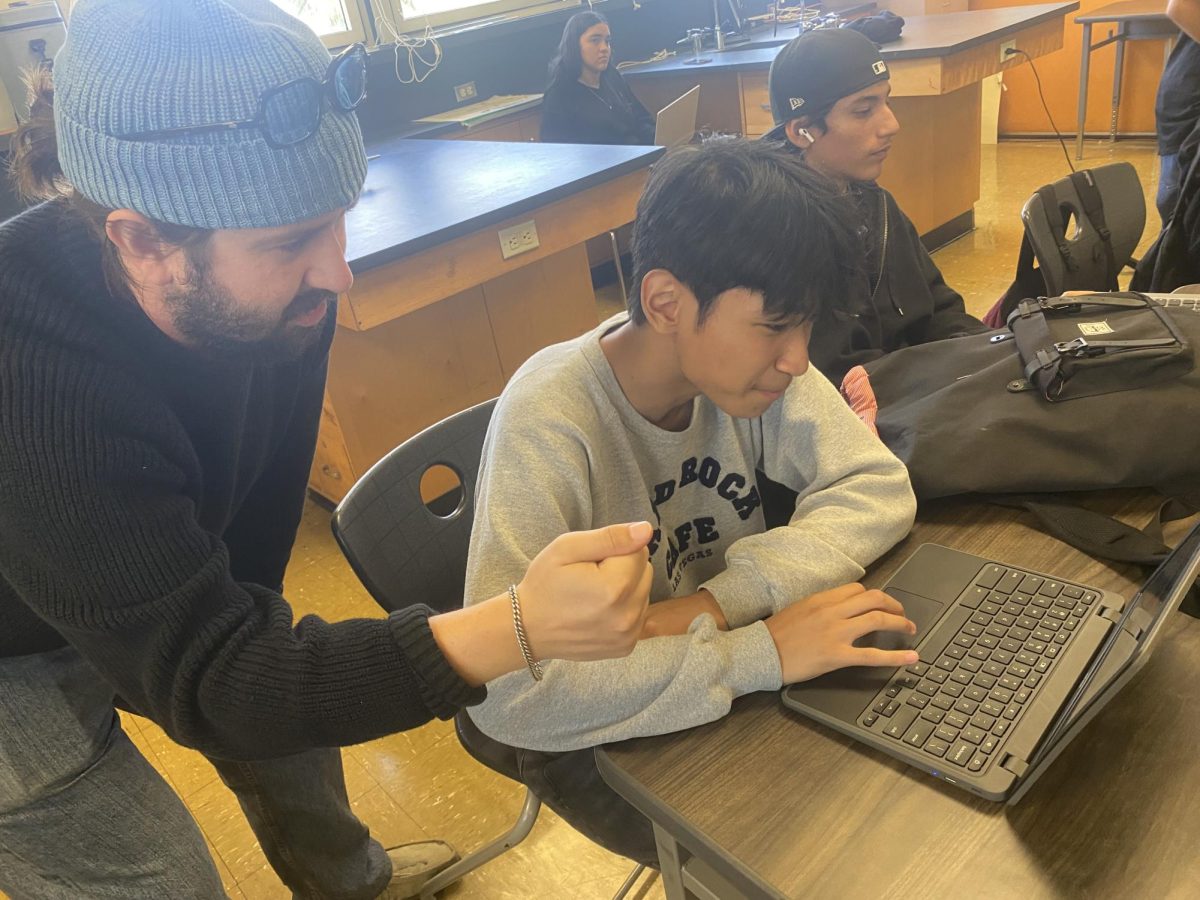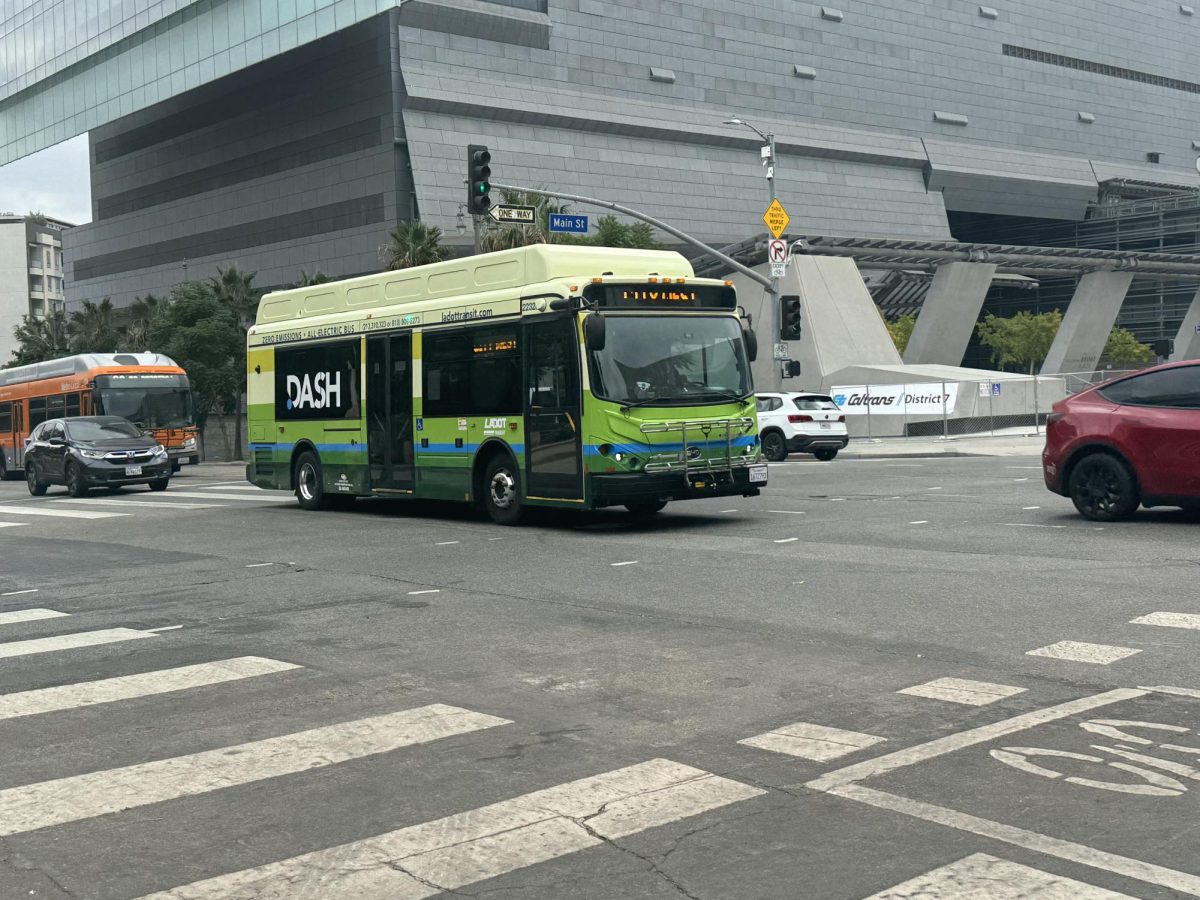Everywhere we look there’s technology. From our phones, to self-driving cars, to self checkout at grocery stores, there’s no escape. Even young children, some no older than 6 or 7, have the latest iPhones and iPads. And while technology is playing a very prominent role in today’s society, and one can argue the benefits of technology it provides, such as new tools to help assist disabled people or providing answers within seconds, It feels as if there is a social and educational disconnect.
This disconnect is most apparent in the recently released literacy scores in the Los Angeles Unified School District according to the California Assessment of Student Performance and Progress. But this issue began before high school. Some of Marshall’s students attended Thomas Starr King Middle School. In middle school, the age of students ranges from 10-12 years old. Taking this into consideration, according to experts they recommended parents to get their child a phone when they are mature and ready for the online world. Phones were thought to be used for staying in touch with parents as students ventured out on their own as students. We received iPads in 6th grade at the age of 10. From that point on our teachers rarely had us complete assignments on paper or actually read a hardcover book. And everyone anyone or we looked at was on their iPad playing a game or taking pictures during class. When it came time for reading aloud, most couldn’t get through the first sentence without needing assistance.We always wondered, “Why is that?” And as we grew up and observed this, this constant followed us into my high school years. Everywhere we look someone was on their phone. When it came time for a test or to silently read, students saw it as a punishment.
We wanted to dig deeper into the statistics, and ask English teachers who witnessed this disconnect as they taught. We also interviewed students who feel the effects firsthand.
While researching the drop in literacy rates we found statistics that show according to the Summative ELPAC (English Language proficiency assessments for California) in 2023-24, it states that the majority of juniors and seniors tested at grade level in Oral Language & Listening but scored below grade level in Reading & Writing. Students by domain says the percentage of 56.6% of juniors and seniors 52.60% are just beginning to develop reading skills, as opposed to 2019, seventy percent of twelfth-graders performed at or above the National Assessment Of Educational Progress basic level in reading. That is a significant 17.4% drop, a drop that is shown to be absolutely detrimental to students and their future career options. This can affect a student’s ability to efficiently apply for a job due to the lacking of skills that these rates perceive.
Reflecting on these numbers, we interviewed English teachers who agreed that there was a drop in literacy and an issue in technology use. Teachers are saying yes, there has definitely been a drop in literacy due to the overuse of devices. A study from Common Sense Media says that 97% of high school students admitted to using their phone during school hours. In various cases students either don’t have access to books at home or they are not receiving the guidance to believe that reading is important and crucial for their future.
High School teachers still find themselves having to remind students to read and get out books. In every situation there seems to be a lot of reluctance during reading times, students don’t want to take books out or they become restless when reading. English teacher Mr. Adam Brock, states “Kids are getting into good schools and the kids can’t actually read. It’s more so because they are working so hard on “more important assignments” they start to see reading as a timed luxury that they can’t afford to do. And no one is to blame more than our society”.
Instead of studying with a book students are turning to phones and technology for the answers. Even after surveying students at Marshall, the majority stated that they will read every now and then or not at all. When it comes to finding answers on assignments most don’t even do the work anymore because it’s “more convenient” to cheat than to analyze text. These are the tools we’ve been given, they are not all bad but they are bringing our generation down since no one really has to work for answers anymore. It is shown that our brains develop more when we have to work harder and go through the steps to find answers.
For the last two years we have been testing with I-Ready Diagnostics instead of the previous Renaissance Learning testing. On the I-Ready test students are more likely to click through the test than try to get an accurate score. Students who click through the test are not meeting grade level expectations, their scores range from low elementary to average middle school. When talking to Ms. Kate Feek, also in the English Department, said, “No, students are not meeting grade level. This is most likely because it is not being taken seriously. Renaissance testing was a shorter form of testing so more engagement from students”. With Renaissance testing students had an assessment with 34 questions keeping their attention span and getting more accurate answers to measure their achievement levels. When talking about which was more accurate for students I-Ready had more real-time questions that would help our understanding, usage and classification.
Now LAUSD has come up with ways to limit technology. With Yondr pouches they try to intensify attention in classrooms for better learning. We believe that if teachers go back to work on paper it motivates students to work harder and more efficiently than on a computer where they might cheat. Teachers like Ms. Ebony Villasenor and Ms. Katie Feek has their students read silently for the first 10 minutes of each class period. Ms.Villasenor also gives assignments that require her students to use their notebooks, books and pencils and strictly no technology. Like other schools, teachers here like to take their classes to the library for a silent reading day. Teachers like Mr. Brian Pfeffer has a schedule where he visits the library with his class for the day and everyone reads the entire period. The teachers state that reading helps improve a students understanding and ability in life.
In the end, we believe that less time on tech can be truly beneficial to our student’s futures and the following generations to come. Students can take the time to discover new books that they actually enjoy, read short stories and even journal their own narratives to fulfill their own personal likings. There are so many resources that offer books like the public library, libraries at our schools, even free book boxes you pass on a walk. Reading can be a truly eye- opening experience that not only broadens vocabulary but expands your mind with new information making you more knowledgeable and creative. It’s up to us to create a better world for ourselves and our peers.

